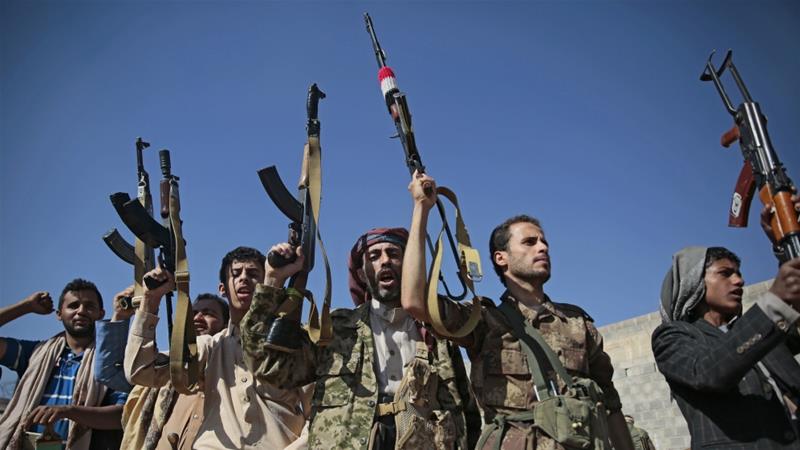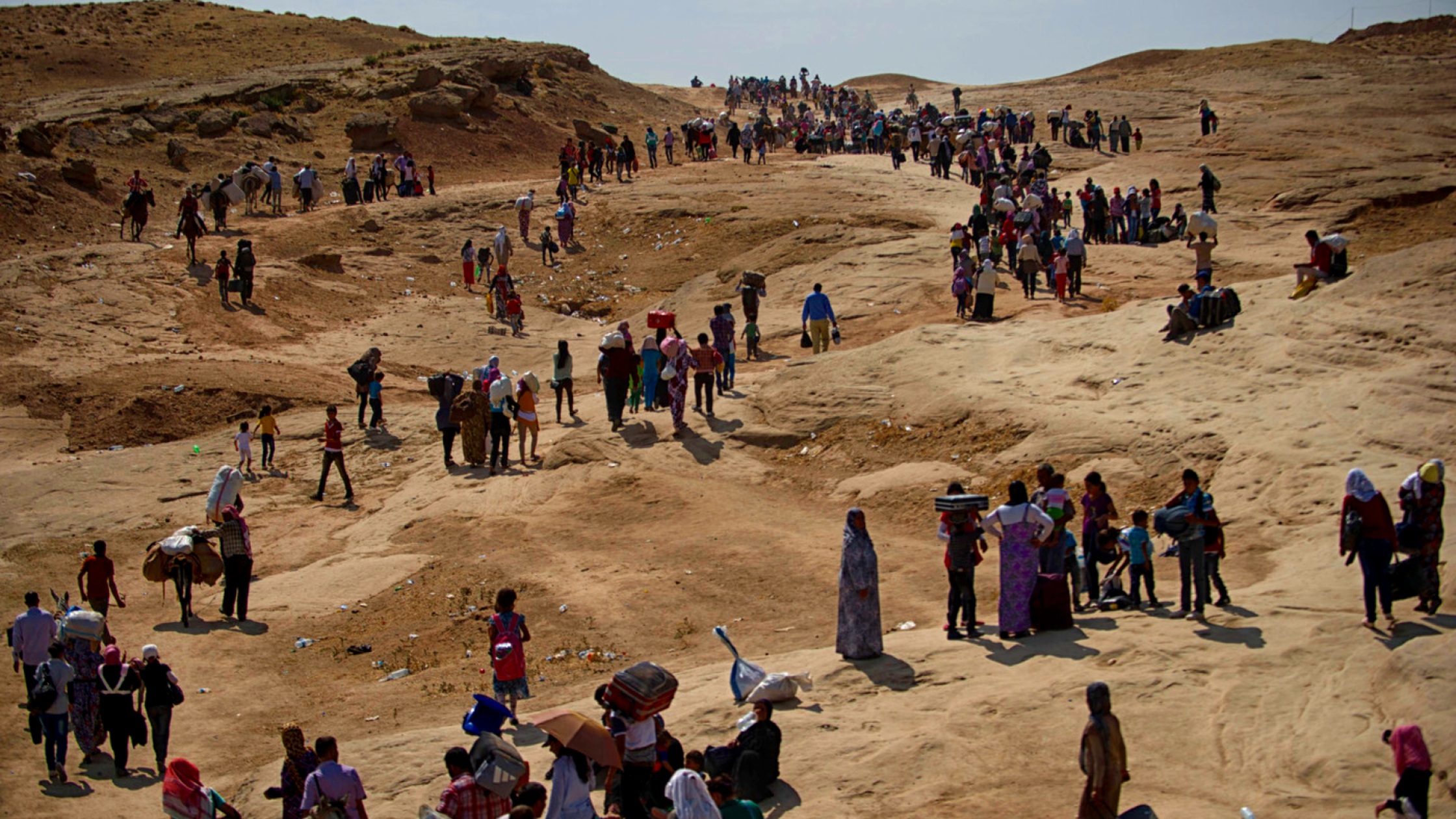The Yemeni Civil War has created the worst humanitarian crisis in the world, leaving more than one hundred thousand dead, millions homeless, and even more without food and water.
More than 20 million Yemeni civilians continue to suffer from food insecurity, with 18 million lacking access to clean water. The economy of the Arab country has fallen into shambles, with the worst of this impacting Yemen’s densely-populated North, which remains under the control of the militant Houthi movement.
However, despite the continued economic disaster affecting the Yemeni people, the Houthis have now implemented a major tax reform that critics argue is designed to siphon money away from the Yemeni people in order to further sustain the Houthis’ domination over their occupied territories.
They undertook the change, an amendment to Yemen’s Zakat tax code, through an executive order in April; however, the Houthis postponed the announcement of the change until recently. Independent from traditional taxes collected by the state, the Zakat is typically defined as a religious levy specifically earmarked to aid the poor.
The “Khums”—one-fifth—amendment imposed an additional levy of 20% on all of Yemen’s natural resources, including agriculture, oil, and livestock, three of Yemen’s most important industries.
The Zakat is by no means a novel concept in Yemen; in fact, as one of the five pillars of Islam, the Zakat tax is established as law in numerous countries, including Libya, Saudi Arabia, Sudan, and Yemen. However, while the Zakat is traditionally designed to help the poor, the money raised through these means will now be given to the descendents of the Prophet Muhammad, the “Bani Hashem” tribe—of which the Houthi’s leadership claims to be a part.
In following with a long history of what some claim is a Houthi monopolization of power in Yemen, the move seems to represent yet another attempt by the group to consolidate the country’s wealth into its own hands.
The Houthi Yemen
In the mountainous interior of Yemen’s densely populated North, the Houthi occupation has become analogous to the authoritarian rule of Yemen’s former dictator Ali Abdullah Saleh. Rather than overthrow the previous regime in Yemen, the Houthis have instead acted to replace it with an equally authoritarian leadership.
The Houthis and Saleh initially reached a power-sharing agreement when the former took control of Sana’a in 2014, but the alliance eventually broke down three years later and Saleh was killed.
Within months, the Houthis began to purge Saleh-loyalists and monopolize their grip on Yemen. The group appointed “mushrifeen”—supervisors—within every level of the government to ensure loyalty.
On Wednesday afternoons, the Houthis send civil servants, academics, and other officials to “dourat thiqafiya”—cultural sessions—where they swear allegiance to the Houthi’s leader, Abdul-Malik Badreddin al-Houthi. These euphemized indoctrination camps reflect the new culture of Yemen, one where the authority and legitimacy of al-Houthi is beyond question.
“The trajectory [of the Houthis] is towards a Zaydi version of the Taliban,” Abdul-Ghani al-Iryani, a Yemeni analyst, said earlier this year.
Although the Houthis maintained the parliament and military, the group created a parallel government, the Supreme Political Council (SPC), that wields ultimate power. At the reins of this new Yemen is al-Houthi, who has since adopted the title of “Wali al-Alam,” loosely translated as “Supreme Leader.”
Not content with the mere title of “Supreme Leader,” al-Houthi has styled himself as a military strongman, in the likes of Saleh many years before. Al-Houthi has claimed that he is leading a “massira quraniya,” a Koranic march, and his followers proclaim that the Houthis will soon take control over Islam’s holiest cities—Mecca, Medina, and Jerusalem.
However, despite these grandiose proclamations, the Houthis remain firmly entrenched in North Yemen, continuing to rule over their territory in the authoritarian style that has dominated Yemen for decades.
The Fear Economy
The aftermath of the Houthi insurgency left the economy of Yemen in ruins, with the ongoing Yemeni Civil War imposing a hold on any reconstruction efforts. However, beyond being victims of circumstance, the Houthis have persistently operated a systematic campaign to disrupt the flow of aid from the United Nations and foreign actors into Yemen.
Although the World Food Programme (WFP) imports enough food into Yemen to feed more than 12 million people, the Houthis’ “mushrifeen” determines how the food is distributed. Houthi loyalists remain well-fed, with the remaining food being gifted to favored merchants who profit from the monopolized food market. By the end, the rest of the population in Houthi-occupied Yemen are left to fend for themselves.
Aid workers who attempt to circumvent this network of Houthi obstruction are often extorted for money or arrested and held hostage. This has forced many aid organizations to leave the country and abandon their efforts.
Within the ensuing climate of fear in the new Yemen loyalty is a prerequisite to survival. Further, the consolidation of Yemen’s national wealth into the hands of the Houthis has made the group into the sole provider for social welfare in their occupied territories.
The new change to the Zakat tax only exacerbates this power monopoly in Sana’a, as the Houthis will continue to profit from the levies on a barely-recovering economy. However, although the Houthis are unlikely to lose their foothold in North Yemen any time soon, the group’s recent activities and promotion of tribalist policies have awakened dissent from both within their occupied territory and abroad.
Dissent Within and Abroad
The people of North Yemen initially greeted the Houthis as liberators, offering applause and open arms. As the Houthi leadership grew more predatory and oppressive, discontent began to surface among the Houthis’ subjects.
This discontent has been evident following the Houthis’ decision to amend the Zakat, with Yemeni citizens criticizing and mocking the decision on social media.

In particular, critics have argued that the policies of the Houthi government continue to inch closer to those of South Africa’s apartheid regime, highlighting the Zakat amendment as further evidence.
“If what is rumoured about the Houthi legislation that gives the Hashemites a fifth of the country’s wealth under the claim that it is their legitimate right, then that is a calamity for the Hashemites before being a disaster for the country,” Mohamed Azzan, a Yemeni Islamic scholar, said on Twitter.
“Yemenis will look at it as looting their wealth motivated by racism, and this tyranny only deepens feelings of oppression, giving rise to appalling revenge, albeit after a while.”
Members of Yemen’s government-in-exile feature among the critics, including Minister of Human Rights Mohammed Askar, who argued that the amendment displayed the Houthis’ attempts at dividing Yemen through sectarianism and discrimination.
“The so-called law issued by Houthi militias gives them a new opportunity to rob Yemenis and national resources, and it was not ratified by constitutional entities in the country,” Askar told the newspaper Asharq Al-Awsat.
“When examining the law, it becomes evident that it is exceptionally discriminatory and it sets the stage to divide society into classes and abolish the concept of citizenship among the members of the community.”
Joining with Turkey, the United States, Brazil, and others, the Houthis in Yemen are continuing to follow the path of authoritarianism and domination. As Yemen’s population adjusts to their country’s disappearing wealth, the Houthi leadership remains immune to Yemen’s fragile economic state.





